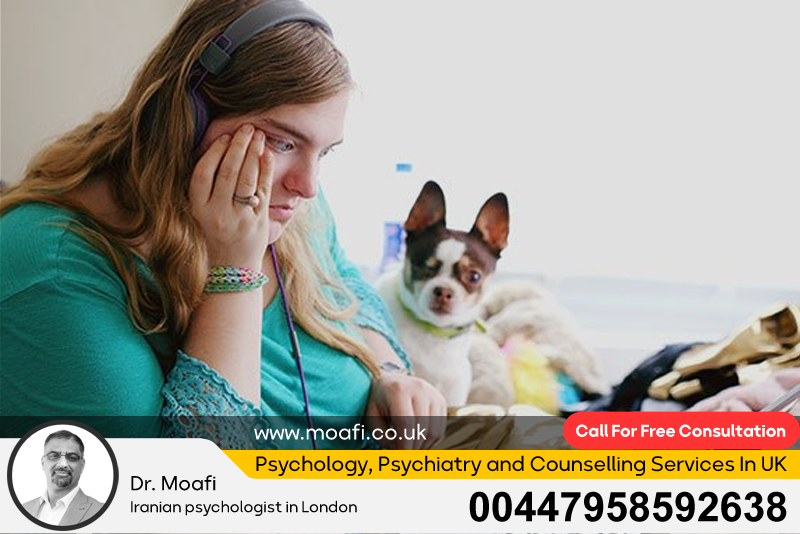Autism Assessment for Women in London
Autism Spectrum Disorder (ASD) has often been associated with a male predominance in research and diagnosis, leading to a significant gap in understanding and identifying the condition in women. Women on the autism spectrum frequently exhibit different characteristics and may develop masking strategies to conceal their symptoms. This has contributed to under diagnosis and misdiagnosis in females, which is particularly concerning as it deprives them of the support and resources they need. In recent years, there has been a growing recognition of the need for specialized autism assessments tailored to women, particularly in urban centers like London, where diverse populations and expertise converge.
A comprehensive autism assessment for women should consider the nuances of female presentation. While some women may display classic signs of autism, others may communicate differently or focus intently on specific interests that mask their struggles. Additionally, the social pressures women experience can lead to heightened anxiety and depression, further complicating diagnosis. Therefore, an assessment process that is sensitive to these factors is essential. This includes utilizing assessment tools and techniques that differentiate between typical female behaviors and those indicative of autism. Mental health professionals specializing in autism assessment for women can provide insights that lead to more accurate diagnoses and tailored support.
In London, a city that embraces diversity in its populace, access to specialized assessments is becoming more widespread. Clinicians are beginning to implement gender-sensitive evaluation methods that acknowledge the unique experiences of women with autism. This not only enhances the diagnostic process but also fosters a more inclusive understanding of autism. The landscape of autism assessment continues to evolve, with increasing awareness and advocacy leading to better recognition of female autism traits and experiences. As a result, more women are being diagnosed later in life, allowing them to access support that they may have previously believed was unavailable or irrelevant to their experiences.
The importance of tailored autism assessments in London cannot be overstated. With the right diagnosis comes the potential for early intervention, peer support, and access to resources that can facilitate better life outcomes. Establishing community programs focusing on educating families, educators, and healthcare professionals about female autism can greatly enhance the autism spectrum’s visibility in women. As society becomes more aware of the unique challenges faced by autistic individuals, particularly women, efforts to ensure that these assessments are accessible, nuanced, and supportive must continue.
Dr. Alireza Moafi: Autism Assessment for Women in London
Dr. Alireza Moafi is a notable figure in the field of autism assessment, particularly regarding the recognition and diagnosis of autism in women. With a deep understanding of both the clinical and personal dimensions of autism, Dr. Moafi has worked diligently to address the specific needs of women seeking diagnosis in London. His approach is centered on creating a safe and supportive environment where women can openly discuss their experiences without fear of judgment. This patient-centered methodology is critical in fostering trust, which is essential for accurate assessment.
Through his practice, Dr. Moafi employs a comprehensive assessment model that encompasses a variety of tools designed to assess autism symptoms effectively. Women often present with subtler signs of autism, such as anxiety, depression, or social difficulties, which can lead to misdiagnosis if not appropriately recognized. Dr. Moafi focuses on detailed interviews, behavioral observations, and standardized assessment tools that capture the full spectrum of symptoms female patients may exhibit. This thorough approach ensures that all relevant factors — including co-occurring mental health conditions — are considered during the diagnostic process.
Moreover, Dr. Moafi provides education and support not just for his patients but also for their families. This holistic approach is vital in ensuring that women with autism understand their diagnosis and can navigate the complexities of their experiences. He emphasizes the importance of building a support system, empowering women with the knowledge and resources they need to advocate for themselves in personal, academic, and professional settings. The advocacy extends beyond individual consultations; Dr. Moafi is involved in community awareness programs that aim to reduce stigma and foster understanding regarding autism in women.
The work of Dr. Alireza Moafi represents a significant step forward in addressing the gender disparities that have historically plagued autism research and assessment. By focusing on the unique ways autism manifests in women, he is contributing to a broader shift in how society understands and supports autistic individuals. His commitment to ongoing education, both for practitioners and the public, plays a critical role in shaping a more inclusive environment for autistic women in London and beyond. As the conversation around autism continues to evolve, the foundation laid by professionals like Dr. Moafi will be instrumental in ensuring that future assessments and treatments are equitable and effective for all individuals on the spectrum.

Autism for Women
Autism Spectrum Disorder (ASD) does not discriminate based on gender; however, the diagnosis and understanding of the condition have historically been male-centric. For women, autism can present differently than it does in men, leading to underdiagnosis and a lack of appropriate support. While awareness is growing, there still exists a significant gap in understanding how autism affects women uniquely. The common stereotypes and narratives surrounding autism typically center on characteristics observed in males, perpetuating the misconception that autism is primarily a “male disorder.” This focus can obscure the experiences of many autistic women, who might not fit the conventional mold.
Women on the autism spectrum often develop coping mechanisms and masks to navigate social situations, sometimes resulting in their symptoms being overlooked or dismissed. Such masking can lead to heightened anxiety and stress, as women may feel constant pressure to conform to societal expectations and norms. This struggle often means that women are diagnosed later in life; they may only receive a formal diagnosis after years of grappling with undiagnosed challenges, such as social anxiety, depression, or difficulties with communication and emotional regulation. These overlapping issues can further complicate the identification of autism in women.
The ability of many autistic women to blend in socially can lead to a feeling of isolation, as they might feel different from their peers but lack the language or understanding to describe their experiences effectively. This is especially evident in educational and occupational settings where their challenges might not be recognized. Support for women with autism must, therefore, be multi-faceted, addressing both their unique presentation and co-occurring conditions, while also promoting self-acceptance and empowerment.
It is crucial for society to foster environments that acknowledge and celebrate neurodiversity. Increasing public awareness of how autism manifests in women can help ensure earlier diagnoses and the provision of supportive resources. Empowering women on the spectrum through advocacy and education can also combat stigma and facilitate connections with others who share similar experiences. By addressing the specific needs of women with autism, we can create a more inclusive and understanding community that recognizes their strengths and challenges, ultimately leading to improved mental health outcomes and quality of life.

Signs and Symptoms of Autism Spectrum Disorder in Women
Identifying Autism Spectrum Disorder (ASD) in women can be particularly challenging due to the subtlety of some symptoms and the tendency for women to develop coping strategies that mask their difficulties. While the core characteristics of autism, such as challenges with social communication and restrictive, repetitive behaviors, are consistent across genders, the way these symptoms manifest can vary widely in women. Understanding these signs and symptoms is crucial for achieving an accurate diagnosis and ensuring that suitable support is provided.
One prominent sign of autism in women is social communication difficulties. Many women on the spectrum can articulate their thoughts well but may struggle with nonverbal cues, such as body language or tone of voice. In social settings, they may find it difficult to initiate or maintain conversations, or they might misinterpret social norms, leading to awkward interactions. Consequently, autistic women may experience feelings of isolation or inadequacy in social situations, as they often recognize their struggles even if they cannot articulate them.
Repetitive behaviours and fixations can also differ in expression. While boys might engage in more noticeable and overtly repetitive actions, women often channel their interests into socially accepted pursuits, such as collecting or researching specific topics. However, this can mask their deeper, obsessive interests, which are common in autism. For instance, a woman might appear highly engaged in a hobby like crafting or reading but struggle with the intense anxiety or stress when faced with changes in routine or disruptions in their activities.
Emotional regulation is another critical area where women with autism might encounter challenges. Many autistic women experience heightened sensitivity to sensory inputs, including sounds, lights, or textures, which can lead to emotional overwhelm. This sensitivity may not always be recognized as part of the autism spectrum, resulting in mislabeling as general anxiety or mood disorders. Furthermore, co-occurring mental health issues, such as anxiety and depression, are prevalent among autistic women, further complicating their experiences and the diagnostic process.
Overall, the signs and symptoms of autism in women require careful consideration and understanding. Awareness of these nuanced presentations is essential for parents, educators, healthcare professionals, and the broader community. By fostering an environment that recognizes the unique experiences of women with autism, we can facilitate earlier interventions, tailored support, and ultimately, a greater understanding of autism as a whole.
What is Autism in Women?
Autism Spectrum Disorder (ASD) is a neurodevelopmental condition that affects how individuals perceive and interact with the world. While the core characteristics of ASD—such as challenges in social communication, restricted interests, and repetitive behaviors—are consistent across genders, autism in women can manifest in distinct and subtle ways. These differences often lead to a misunderstanding or underrecognition of autism in females, who may develop coping mechanisms to navigate societal expectations that obscure their symptoms.
Women on the autism spectrum may demonstrate a unique combination of strengths and challenges. Many are adept at imitating social behaviors or masking their symptoms in social situations, which allows them to “fit in” more easily than their male counterparts. This ability to camouflage can result in later diagnoses, often during adolescence or adulthood, as these women may present fewer obvious signs of autism. Some common characteristics among autistic women include stronger verbal communication skills compared to autistic men, an intense focus on niche interests, and heightened empathy. However, these qualities can coexist with underlying struggles, such as anxiety, sensory sensitivities, or difficulties with emotional regulation.
One critical aspect of autism in women is the risk of co-occurring mental health issues. Many autistic women experience anxiety, depression, and low self-esteem, which can stem from their challenges in social situations and the pressure to conform to societal norms. This emotional burden can further complicate their experiences, as they may feel isolated or misunderstood. Hence, understanding autism in women extends beyond the clinical diagnosis; it encompasses a broader recognition of their lived experiences and the unique challenges they face.
As awareness of female autism grows, there is also an increasing emphasis on developing appropriately tailored assessments and interventions that consider the specific needs of women. Educators, healthcare providers, and families must remain vigilant in recognizing the signs of autism in women, ensuring that they receive the support necessary for navigating everyday life. Enhanced societal awareness can lead to improved access to resources, timely diagnoses, and ultimately, a better quality of life for women with autism.

What Causes Autism in Women?
The exact causes of Autism Spectrum Disorder (ASD), including its presentation in women, remain a complex interplay of genetic, environmental, and neurological factors. Current research suggests that autism is highly heritable, with genetic factors accounting for a significant portion of variations in autism diagnosis. Twin and family studies indicate that if one identical twin has autism, the likelihood of the other twin also being diagnosed is considerably high. Specific genes associated with brain development and function are believed to contribute to the risk of developing autism. However, pinpointing these genes and understanding their interactions can be extraordinarily complex due to the polygenic nature of the disorder.
In addition to genetic predispositions, various environmental factors might influence the manifestation of autism in women. Prenatal factors, such as maternal infections, exposure to certain medications or toxins, and complications during pregnancy or birth, have been linked to an increased risk of autism. For example, prenatal exposure to substances like valproate, an anticonvulsant medication, has been associated with a higher likelihood of autism. Additionally, maternal stress during pregnancy has also been suggested as a potential risk factor.
Neurological differences also play a critical role in autism development, particularly regarding the brain’s structure and function. Research has indicated that the brains of autistic individuals may exhibit variations in connectivity, growth, and areas involved in social interaction and communication. These neurological differences can lead to the characteristic features of autism, such as challenges in social cognition, which are evident in both men and women but can present differently based on gender.
Interestingly, the gender gap in autism diagnoses may also suggest that factors influencing autism expression differ between males and females. Women often exhibit subtler symptoms or may develop compensatory strategies, which makes it more challenging for clinicians to recognize the signs of autism. This has led to the hypothesis that female protective factors, including social adaptation skills or hormonal influences, might dampen the expression of autism in females, resulting in delayed diagnosis.
Overall, understanding the causes of autism in women requires a comprehensive approach that considers genetics, environmental influences, and neurological development, all while recognizing the gender-specific variations that contribute to the autism experience. Continued research and awareness are essential for developing effective diagnostic and intervention strategies for women on the autism spectrum.
Treatment of Autism in Women
Treating autism in women involves a comprehensive, individualized approach that addresses the unique needs and challenges they face. Because the symptoms of Autism Spectrum Disorder (ASD) can manifest differently in females, treatment plans should be tailored to account for these differences. Such plans commonly combine behavioral interventions, therapeutic support, and, when necessary, medication to enhance the quality of life for autistic women.
Behavioral interventions, particularly Applied Behavior Analysis (ABA), are widely used to support individuals on the autism spectrum. ABA focuses on increasing desirable behaviors while reducing those that may be harmful or interfere with learning. For women, who may experience social communication difficulties, ABA can be especially beneficial in improving social skills, enhancing emotional regulation, and fostering functional communication. Additionally, social skills training programs are invaluable in teaching women how to navigate social situations more effectively, providing strategies to handle anxiety and improve interpersonal interactions.
Therapeutic support is also crucial in the treatment of autism in women. Cognitive Behavioral Therapy (CBT) is frequently employed to help individuals manage anxiety and depression, common co-occurring conditions in autistic women. CBT assists individuals in identifying negative thought patterns and developing coping strategies. For some, group therapy can provide a sense of community and belonging, allowing women to connect with others who share similar experiences and challenges.
Occupational therapy (OT) can play a vital role in supporting women with autism as well. OT focuses on improving daily living skills and enhancing sensory processing, which is particularly important as many autistic women may experience sensory sensitivities. By working with an occupational therapist, women can learn adaptive strategies to navigate sensory challenges, improving their overall quality of life.
In certain cases, medication may be prescribed to help manage symptoms, particularly when co-occurring mental health conditions like anxiety, depression, or attention-deficit/hyperactivity disorder (ADHD) are present. Medications can offer relief from debilitating symptoms, making it easier for women to engage in therapy and daily activities.
Finally, ongoing education and advocacy are essential components of treatment. Empowering women with autism through resources, information, and support groups can help them understand their diagnosis and navigate the challenges they face. Ultimately, the goal of treatment is to help women with autism to thrive in their personal, academic, and professional lives, fostering independence and well-being.
Autism in Women: Symptoms, Causes, Types, and Testing
Autism Spectrum Disorder (ASD) manifests with diverse symptoms and characteristics in women, making recognition and diagnosis a nuanced process. When considering autism in women, it’s essential to examine the symptoms they commonly exhibit, the possible causes of these symptoms, the types within the autism spectrum, and the testing methods utilized for accurate diagnosis.
Women with autism may present with a range of symptoms, including social communication challenges, restricted interests, and sensory sensitivities. Unlike men, women may excel in verbal communication but struggle with nonverbal cues, leading to misunderstandings in social situations. They may also engage in masking behaviors—consciously mimicking socially acceptable behaviors to fit in. Additional symptoms include heightened emotional sensitivity, anxiety, and the potential for coping mechanisms that result in mental health issues, making diagnosis more complicated.
The causes of autism in women involve a combination of genetic and environmental factors. Genetic predispositions play a significant role, with studies indicating that specific gene variations associated with brain development can contribute to the likelihood of developing autism. Environmental factors, such as prenatal exposure to certain medications or maternal stress, can also influence this risk. These biological factors interact with the complexities of social learning and environment, shaping how autism is experienced by women.
Within the spectrum, subtypes of autism may reflect the varying presentations seen in men and women. While the traditional clinical categories focus on observable behaviors, women may demonstrate characteristics of high-functioning autism or Asperger’s syndrome, often thriving in areas of interest, which can mask their social challenges. This highlights the need for a broader understanding of autism manifestations beyond the classic definitions.
Testing for autism in women typically involves a multi-faceted assessment approach. Professionals use standardized diagnostic tools, such as the Autism Diagnostic Observation Schedule (ADOS) and Autism Diagnostic Interview-Revised (ADI-R), to gather comprehensive information about an individual’s development, behavior, and social skills. Due to the gendered differences in autism presentation, clinicians trained in recognizing female-specific traits are crucial for accurate assessment.
In summary, understanding autism in women requires careful consideration of symptoms, underlying causes, specific types, and appropriate testing methods. By recognizing the unique characteristics of autistic women, we can improve diagnostic accuracy and provide tailored support that addresses their individual needs and enhances their overall quality of life.
Dr. Alireza Moafi Will Help You Treat Autism in Women
Dr. Alireza Moafi is a leading expert in the assessment and treatment of Autism Spectrum Disorder (ASD), particularly in women. His approach to autism care is holistic and individualized, recognizing the unique challenges and symptoms that affect women on the autism spectrum. With a deep understanding of the complexities of autism in females, Dr. Moafi employs a range of evidence-based practices designed to ensure effective treatment and support.
One of the key elements of Dr. Moafi’s treatment philosophy is the recognition of the different ways autism can manifest in women. He understands that traditional diagnostic criteria may not adequately capture the subtleties of female presentations, including high-functioning autism and the tendency to mask symptoms. As such, Dr. Moafi conducts thorough assessments that prioritize a woman’s lived experiences, allowing for a more accurate understanding of their individual challenges. This comprehensive approach not only aids in diagnosis but also helps in crafting personalized treatment plans that align with each patient’s unique needs.
Treatment plans developed by Dr. Moafi often include a combination of behavioral therapies, counseling, and social skills training. For many women, gaining confidence in social situations and managing anxiety is crucial for improving their quality of life. Dr. Moafi utilizes evidence-based therapies such as Cognitive Behavioral Therapy (CBT) and Dialectical Behavior Therapy (DBT) that are specifically geared towards addressing the emotional and psychological well-being of his patients. These therapies can help women manage overwhelming emotions, develop coping strategies, and enhance their social skills.
Dr. Moafi also places a strong emphasis on family involvement in the treatment process. He educates family members about autism and its impact on their loved one, fostering a supportive environment that encourages open communication and understanding. This inclusive approach can significantly enhance the effectiveness of treatment by creating a strong support system for women navigating the challenges of autism.
In addition to his clinical practice, Dr. Moafi is committed to advocating for women with autism and improving awareness around autism-related issues. He believes that empowering women through education and advocacy can lead to better outcomes and a more inclusive society that understands the specific challenges faced by those on the spectrum.
Free Consultation for Women with Autism
Recognizing the barriers many women face when seeking help for autism, Dr. Alireza Moafi offers a free consultation for women diagnosed with Autism Spectrum Disorder. This initiative aims to provide an opportunity for women to explore their challenges and understand their needs without the pressure of financial commitment. The free consultation serves as an essential first step toward effective treatment and empowerment.
During this initial consultation, Dr. Moafi encourages women to share their experiences, symptoms, and concerns in a non-judgmental environment. By fostering open dialogue, he aims to make the women feel comfortable and understood, allowing for a thorough discussion that can help identify specific areas where support is needed. This conversation not only aids in the formulation of a treatment plan but also helps women feel validated in their experiences.
The free consultation also provides an opportunity for women to learn about the various therapeutic options available. Dr. Moafi explains different types of therapies and interventions tailored to women on the autism spectrum, including cognitive behavioral therapy, social skills training, and sensory integration therapy. This information empowers women to make informed decisions about their treatment pathways, ensuring they choose options that resonate with their unique experiences and preferences.
Moreover, this initiative fosters a greater understanding of the importance of early intervention and personalized care in autism treatment. Dr. Moafi aims to engage women in a discussion about their goals while promoting awareness of autism and its implications. By offering a supportive space and a wealth of information, the consultation can help women better comprehend their diagnosis and move towards effective treatment and support.
Ultimately, Dr. Moafi’s free consultation serves as a vital resource for women with autism, facilitating access to specialized care and creating a pathway for empowerment and improved quality of life. This initiative not only highlights Dr. Moafi’s commitment to advancing awareness and understanding of autism but also provides an essential lifeline for women seeking support in their autism journey.



